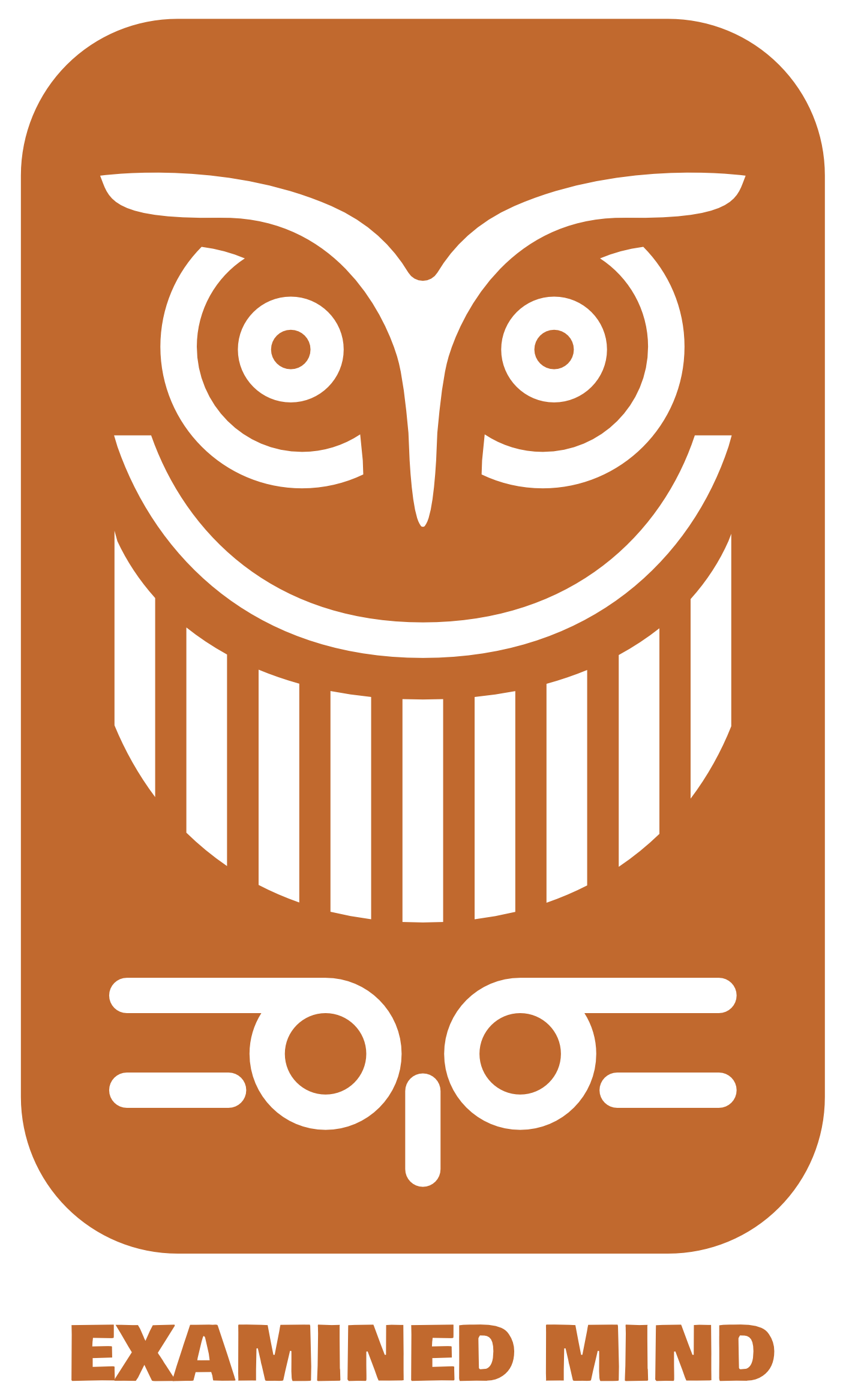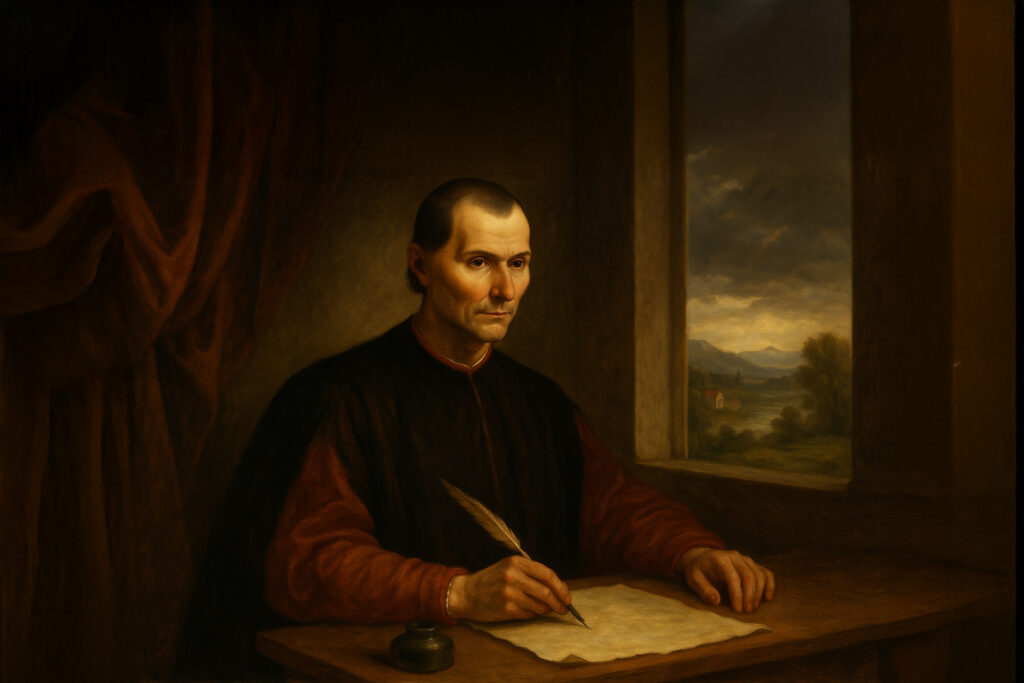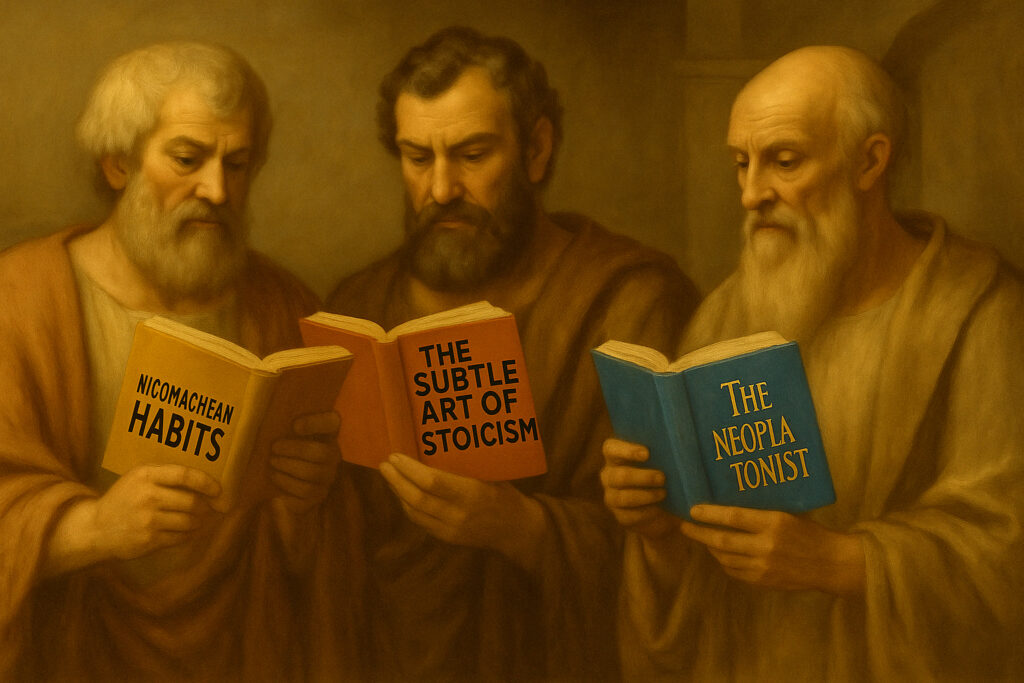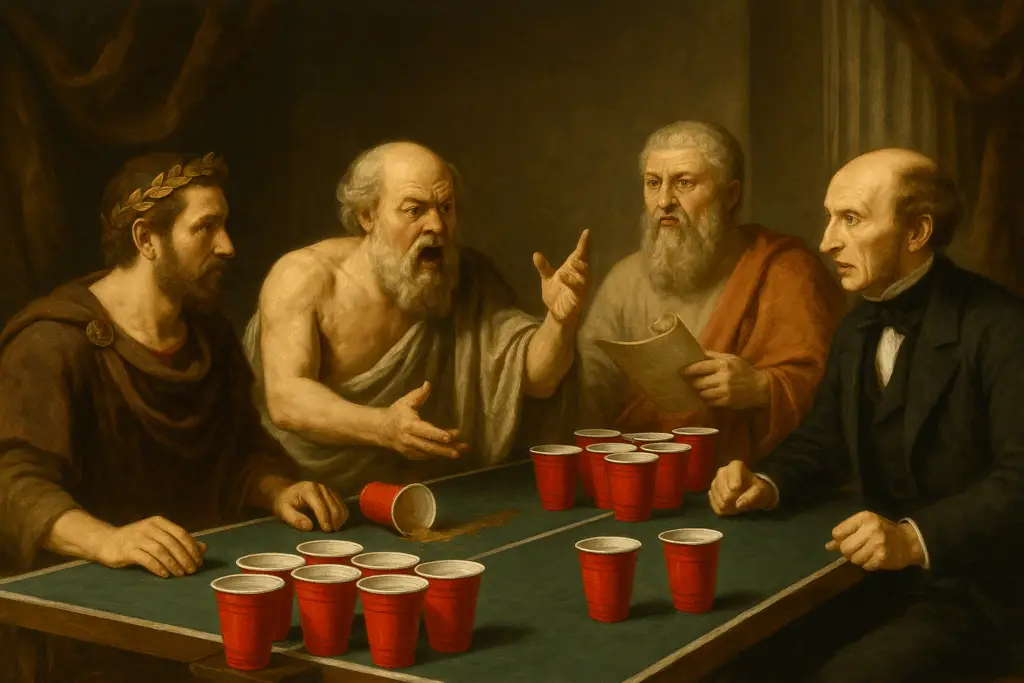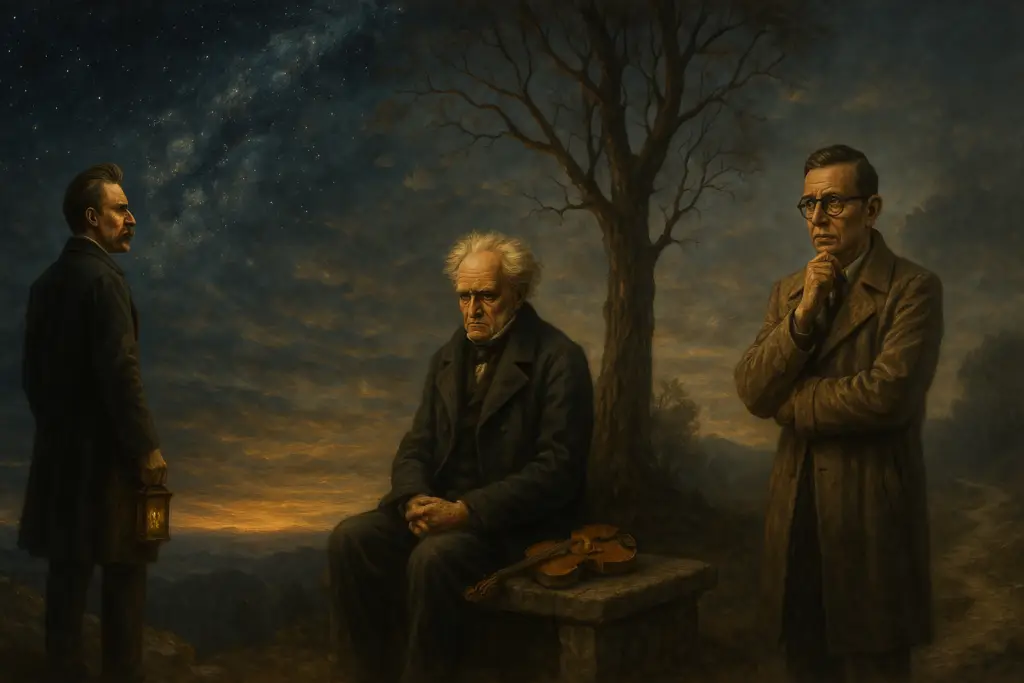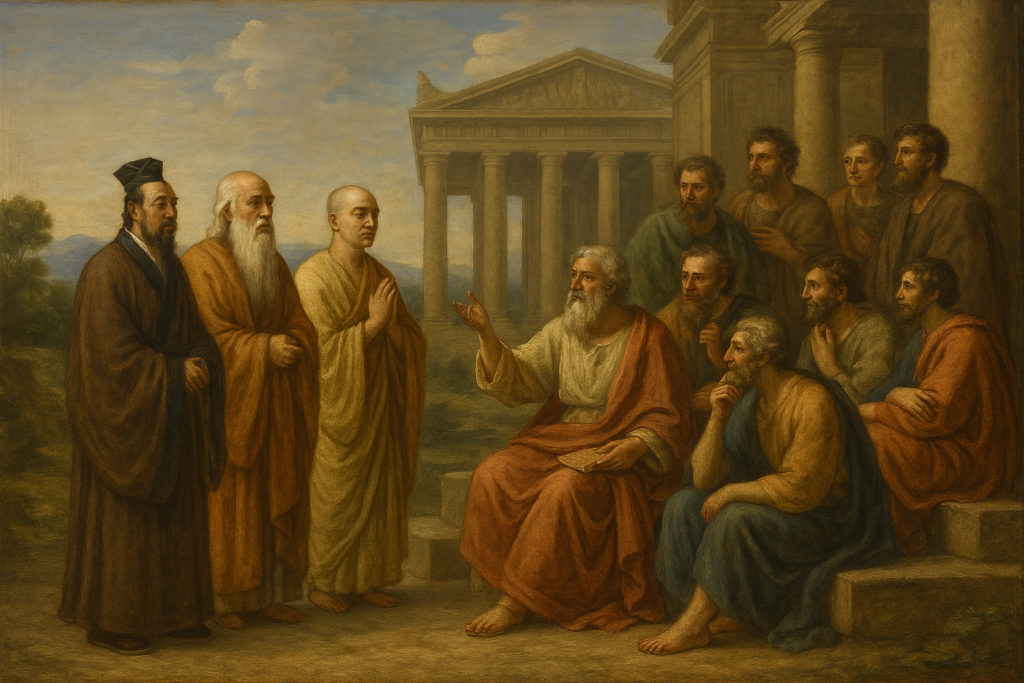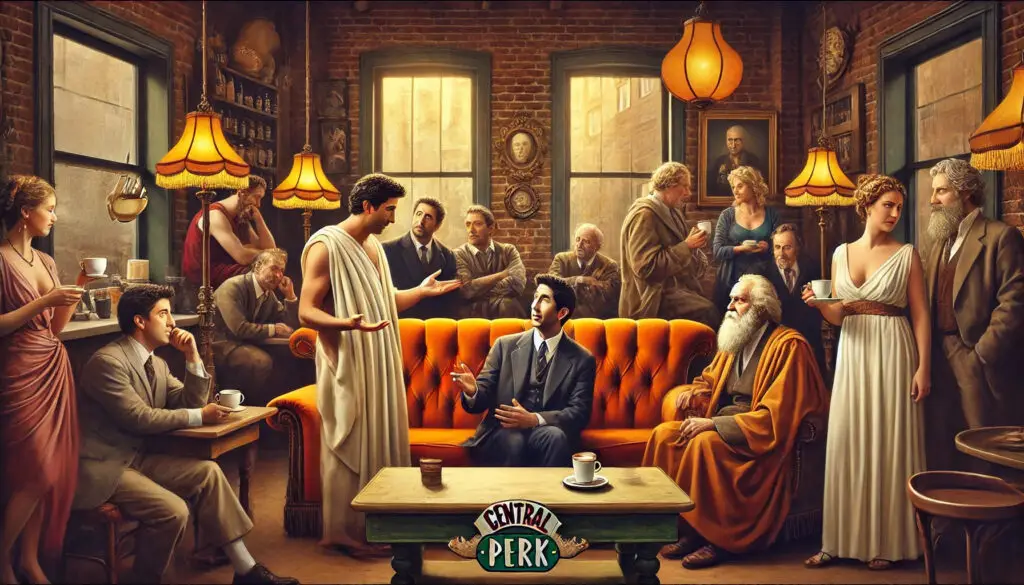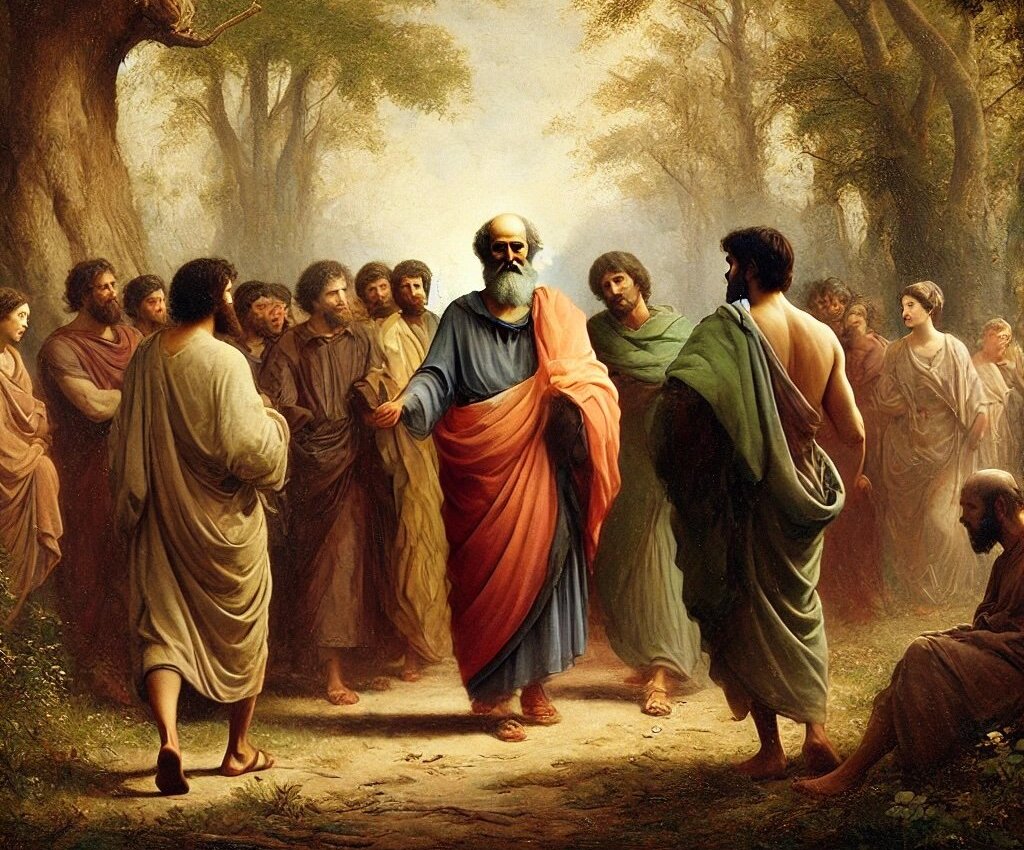THE EXAMINED MIND BLOG
Philosophy isn’t just for books and lecture halls—it’s everywhere, shaping how we think, act, and grow. Whether you’re looking for insights on self-improvement, a fresh take on an old concept, or just some thought-provoking reading, you’re in the right place.
Ready to challenge your perspective? Dive into the latest blogs below.
Philosopher Deep Dive6 days ago
Philosopher Deep Dive: Niccolò Machiavelli
What does it really mean to be Machiavellian? It’s not just about scheming or being ruthless. For Niccolò Machiavelli, the key to navigating chaos wasn’t cruelty — it was virtù: boldness, adaptability, and the guts to act even when the path isn’t perfect. He didn’t sugarcoat life. He showed us how to lead when things fall apart — not by clinging to ideals, but by facing reality with clarity. Because sometimes, waiting for the “right” moment is just fear in disguise.
The World Examined1 week ago
The Ancient Philosophy Behind Modern Self-Help
Ever feel like self-help books are just ancient wisdom in modern packaging? You’re not wrong. From Stoicism in Mark Manson’s no-nonsense advice to Aristotle hiding in James Clear’s habit hacks, the overlap is real. Even The Alchemist echoes the spiritual journey of Neoplatonism. Turns out, our search for meaning, discipline, and change hasn’t changed much in 2,000 years — we’ve just swapped scrolls for bestsellers.
The World Examined2 weeks ago
Medieval Philosophy: Bright Minds During the Dark Ages
When people talk about philosophy, they usually picture togas, scrolls, and the sun-drenched forums of Ancient Greece. What they don’t picture is a monk, a Muslim doctor, and a Jewish legal scholar walking into a library. But maybe they should. The Middle Ages weren’t just a thousand-year nap between Aristotle and Descartes — they were full of thinkers wrestling with the same big questions: What is truth? How should we live? Is faith compatible with reason? This piece takes a fresh look at three medieval giants — Aquinas, Avicenna, and Maimonides — who prove that even in “dark” times, philosophy burned bright.
Practical Philosophy3 weeks ago
How to Disagree Like a Philosopher: The Art of Constructive Discussions
Ever been told you're wrong by someone holding a red solo cup? I have — and it taught me more about philosophy than most textbooks ever did. In this blog I dive into how Socrates, Marcus Aurelius, and John Stuart Mill approached disagreement — not as a battle of egos, but as a path to deeper understanding. Whether you're debating ancient allegories or modern hot takes, this blog explores how curiosity, humility, and respect can turn arguments into insights. Because sometimes, the best way to grow is to be proven wrong — beer pong optional.
The Big Questions1 month ago
Nihilism: How to Find Purpose in a Philosophy That Claims There Is None
What if life really doesn’t have any meaning — is that the end, or just the beginning? In this post, I dive into the philosophy of nihilism and how thinkers like Nietzsche, Schopenhauer, and Sartre dealt with the void. Spoiler: they didn’t just accept the nothingness — they built something out of it. Whether it's through creating values, finding beauty in suffering, or embracing radical freedom, this is about finding purpose despite (or maybe even because of) the lack of one.
The Big Questions1 month ago
What can we learn from Eastern philosophy?
What can we learn from Eastern philosophy? While Plato was busy arguing in the Agora, Confucius was teaching that good government starts at the dinner table. Meanwhile, Laozi was wandering off into the mountains telling everyone to chill, and Nāgārjuna was quietly dismantling reality itself. Eastern philosophy isn’t just incense and inner peace—it’s a rich, complex tradition full of practical wisdom, mind-bending insights, and questions that are still worth asking today. In this blog, we explore three of the most influential Eastern philosophers and what their teachings can offer our modern, often very overthinking, Western minds. Spoiler: sometimes the best answer is no answer at all.
The World Examined1 month ago
What Ross from Friends Can Teach You About Philosophy
What Friends Taught Me About Philosophy (Yes, Really) When people think of philosophy, they imagine old Greek men in togas debating the meaning of life. What they don’t imagine? Ross Geller yelling “PIVOT!” while shoving a couch up the world’s narrowest staircase. And yet, that’s exactly where philosophy showed up for me—right in the middle of a Friends binge during high school Philosophy class (yes, that was a real assignment). Turns out, philosophers and sitcom writers have something in common: they both know the power of a good story. Plato had his allegory of the cave, Camus had his boulder, and Ross? Ross had that couch. And honestly, all three teach us something about the human condition. Stories—whether ancient or sitcom-level ridiculous—help us process life, laugh at it, and sometimes, accidentally stumble into some pretty deep thoughts. Because if you really think about it, aren’t we all just trying to pivot our way through life’s tight corners?
Practical Philosophy1 month ago
Thinking on Your Feet: How Walking Made Me a Philosopher
Being a philosopher isn’t always easy—just ask Socrates, Hypatia of Alexandria, or Jean-Jacques Rousseau. But what if I told you that sometimes, philosophy really is just a walk in the park? Literally. A little over a year ago, stuck in a loop of work, TV, and bad eating habits, I decided something had to change. What started as a simple daily goal to walk 10,000 steps turned into the most unexpectedly philosophical habit of my life. Somewhere between those morning walks and countless steps, I stumbled not just into better health, but into Stoicism, Marcus Aurelius's Meditations, and hours of reflection I didn’t know I needed. It turns out, some of the greatest minds in philosophy—Aristotle, Plato—valued walking just as much. Because walking isn’t just about moving your body; it’s about making space for your mind. Read on to find out how walking quite literally changed my life—and why it might just change yours too.
